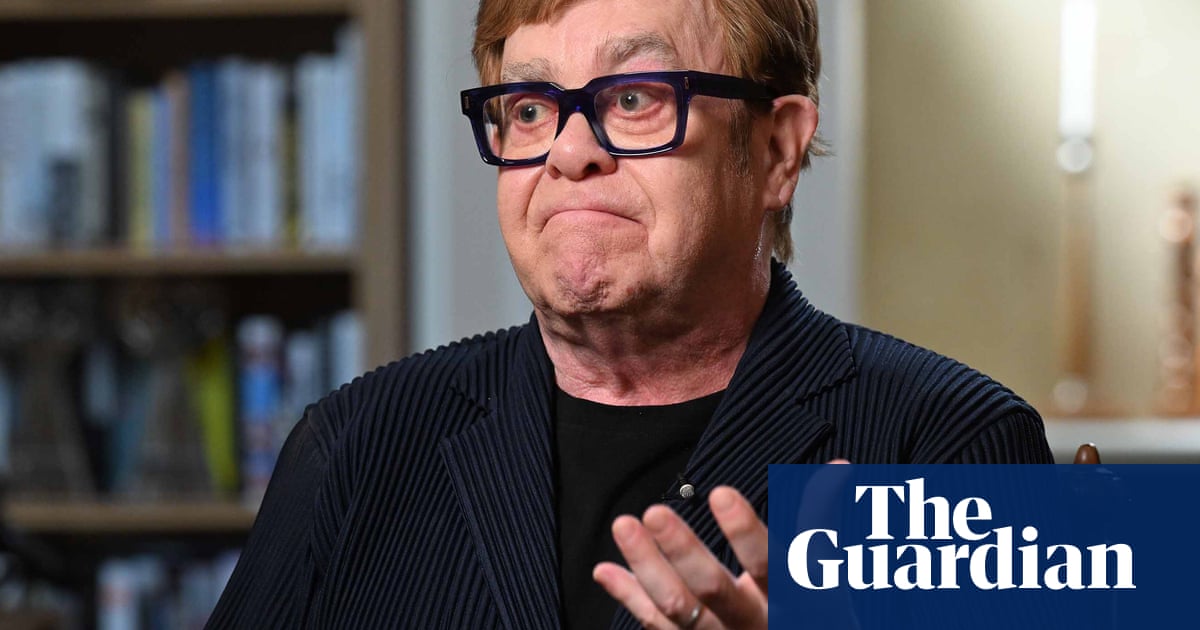SirElton Johnhas called the UK government “absolute losers” over proposals to let tech firms use copyright-protected work without permission.
The songwriter said it was a “criminal offence” to change copyright law in favour of artificial intelligence companies.
In an interview on the BBC’s Sunday with Laura Kuenssberg, John said the government was on course to “rob young people of their legacy and their income”, adding: “It’s a criminal offence, I think. The government are just being absolute losers, and I’m very angry about it|.
John described the technology secretary, Peter Kyle, as a “bit of a moron” and said he would take ministers to court if the government did not change its plans on copyright. Last weekKyle was accused of being too close to big techafter analysis showed a sharp increase in his department’s meetings with companies such as Google,Amazon, Apple and Meta since Labour won the election.
John spoke ahead of a House of Lords vote on a proposal from thecrossbench peer Beeban Kidronthat will require AI companies to disclose their use of copyright-protected content, giving creative professionals leverage to seek licensing agreements for use of their material.
John referred to a similar amendment that received peers’ support last week, only to be removed by the government in the commons, in a tit-for-tat process that threatens to mire the data bill – the vehicle for Lords’ protests against government copyright proposals – in a game of legislative back-and-forth between the Houses of Parliament.
“It’s criminal, in that I feel incredibly betrayed: the House of Lords did a vote, and it was more than two to one in our favour, the government just looked at it as if to say: ‘Hmmm, well the old people … like me can afford it,” said John.
The government isconsulting on a proposalthat will allow AI firms to train their models – the technology that underpins products such as chatbots – on copyrighted work without permission, unless the copyright holder signals they do not want their work to be used. A source close to Kyle has said this is no longer the preferred option in the consultation, although it remains on the table.
The other options are: to leave the situation unchanged; to require AI companies to seek licences for using copyrighted work; and to allow AI firms to use copyrighted work with no opt-out for creative professionals.
A government spokesperson said no changes to copyright would be considered unless “we are completely satisfied they work for creators”. The spokesperson added that a recent government commitment to draw up an economic impact assessment of the proposals would explore “the broad range of issues and options on all sides of the debate”.
